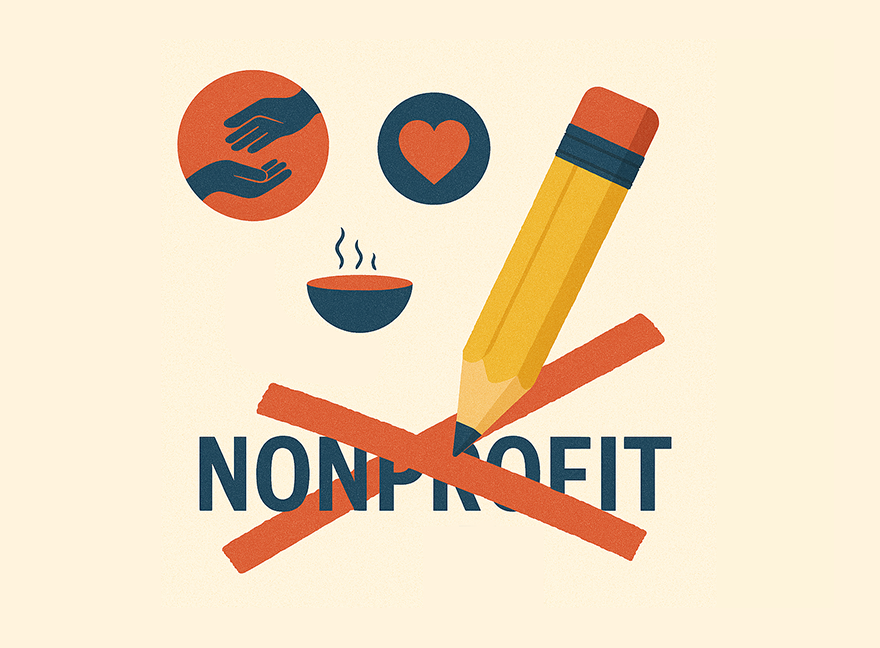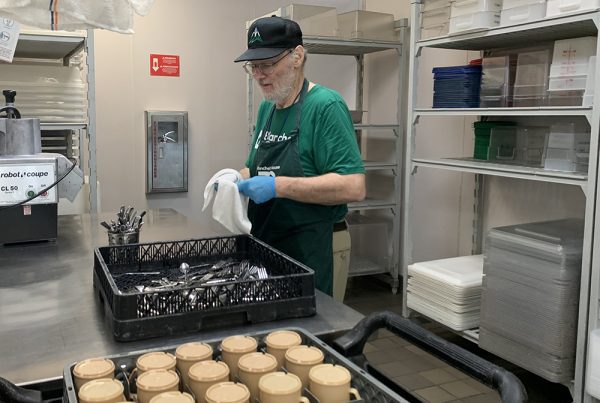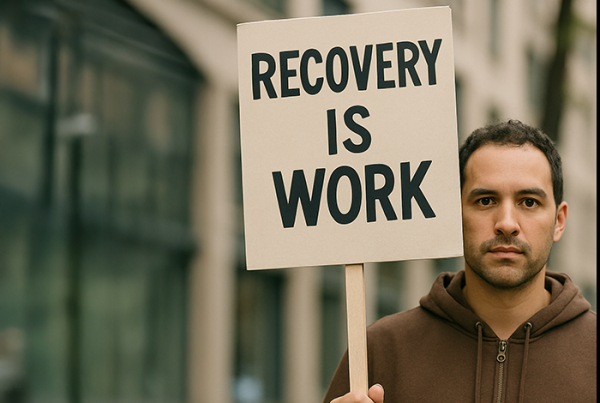By Scott Kerman, Executive Director, Blanchet House
It’s time to retire the word “nonprofit” and adopt language that reflects the true identity and impact of social impact and public benefit organizations.
In the late 1960s, as it struggled to stand out in a cola-dominated market, 7-Up launched a wildly successful campaign by defining itself as what it wasn’t: The Un-Cola. The strategy worked for 7-Up, but as a long-term brand identity, defining yourself by what you’re not is rarely effective. And yet, that’s exactly what many organizations in our tax-exempt human services sector continue to do. We call ourselves nonprofits, a name that literally describes what we aren’t.No one’s quite sure where the term “nonprofit” originated, but there are a few reasons it stuck. Funders, policymakers, and institutions commonly use it in contracts, grants, and legislation, so organizations adopt the term to stay aligned. Many avoid using the term “charity” because it can carry outdated or patronizing connotations by implying pity or dependency rather than empowerment and partnership.
Somewhere along the way, it replaced the word “charity” and became shorthand for “not-for-profit, intended to distinguish mission-driven organizations from for-profit corporations that return earnings to shareholders. Unfortunately, the term has also contributed to a harmful misconception: that it’s somehow wrong or even illegal for these organizations to have surplus revenue.
In reality, a well-run social impact organization must generate more revenue than expenses. That surplus allows us to reinvest in programs, sustain operations during lean periods, and build reserve funds for emergencies. Having a positive bottom line is not just acceptable—it’s essential.
It may surprise you to know that the IRS tax code (501(c)(3)), which governs tax-exempt organizations, rarely even uses the word “nonprofit.” It appears just three times, and mostly about specific types of health care and insurance pooling organizations. The label “nonprofit” isn’t imposed by law. It’s something we’ve chosen to call ourselves.
And that means we can choose differently.
Inspired by Romanita Hairston, the dynamic CEO of the M.J. Murdock Charitable Trust, I’m committing to stop using “nonprofit” as our primary identifier. Instead, I’ll use language that reflects what we are: social impact, public benefit, and human service organizations.
That’s exactly what Blanchet House of Hospitality is. We offer dignity to people in need. We feed, clothe, and shelter those experiencing homelessness, poverty, and neglect. We create spaces of hope and healing for communities burdened by generational trauma and systemic exclusion.
And our work, like that of countless other social impact organizations, is economically significant too. According to the National Council of Nonprofits, these organizations employ 12.3 million people in the U.S. While they may be tax-exempt, their employees are not—and their wages generate substantial tax revenue. These organizations also spend nearly $1 trillion annually on goods and services, fueling local economies across the country.
But the true impact of our work can’t be captured in dollars alone. From frontline disaster response to long-term community care, social impact organizations save lives, offer second chances, and transform futures.
We are not defined by what we’re not. We are builders, healers, advocates, and changemakers. It’s time our language caught up with our mission.


















